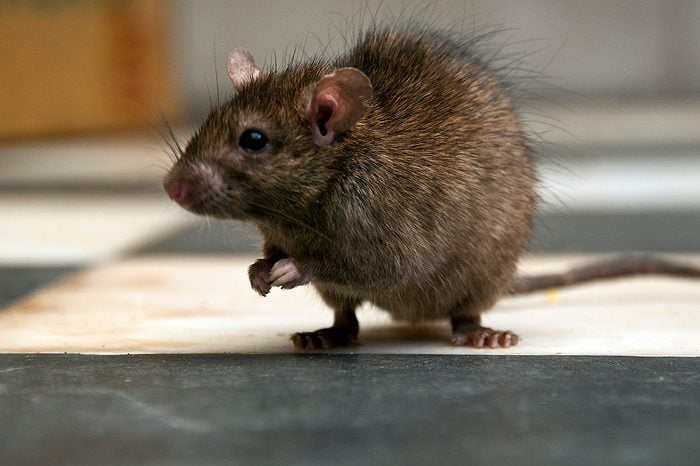How to Get Rid of Rats in the Home

Rodents are a part of nature that most people do not want in their home. Here are proven ways to deal with rodents when they do get inside.
Our editors and experts handpick every product we feature. We may earn a commission from your purchases.
Mice, rats and other rodents are generally not welcome in the family home unless they are kept as a pet. They can damage your home’s wiring, infest your pantry and even carry disease.
Naturally, the best way to deal with rodents is to keep them from getting inside — but you’re here because they’re already in your house. Here are five ways to get rid of the rodents in your house.
On This Page
Where to Find Rats in the Home
Rats can be found anywhere in a home. Basements, attics, kitchens, garages. Anywhere you go, rats go too. Typically they congregate in areas where food sources can be found. Areas where they can hide and gain shelter are also likely to attract rats.
Best Ways to Get Rid of Rats
It’s no surprise, nobody wants rats in or around their homes. Fortunately, there are a few things that can be done to dissuade the whiskery pests from infiltrating your living space.
Set traps
Poet Ralph Waldo Emerson made a profound statement more than a century ago, generally rephrased as “build a better mousetrap, and the world will beat a path to your door.” Rodents have been a nuisance for thousands of years, but with the Industrial Revolution, inventors did come up with new rat traps — some better than others.
Wesley Wheeler, an exterminator with Bug Lord Pest Control, tells us that he “prefer[s] traditional snap traps as they’re the cheapest, and usually a pretty humane way to kill a rodent.” Indeed, a traditional, spring-loaded mousetrap will generally kill mice instantly. Compare that with a glue trap, which traps the rodent by sticking them to the trap while alive, causing them to perish more slowly — a rather inhumane method of pest eradication.
Wheeler says “once you have [rodents]…keep trapping until they’re gone.” Move the traps around periodically, changing out the bait. It’s not just cheese. You’ll quickly see that rodents will eat many different foods (they love peanut butter), so keep trying different baits in your traps until the rodents have disappeared.
Avoid poisons
This warning goes double if you have small children or pets in the house, as rat poison is incredibly dangerous to humans and other animals. While it can be effective in killing rodents, it doesn’t do it quickly. Zachary Smith, of Smith’s Pest Management near San Francisco, recommends “using traps indoors rather than poison so that the animal bodies can be removed before they decompose and emit an awful smell.”
You really want to avoid cutting out baseboards or drywall to recover the rotting corpse of a poisoned rat.
Seal off entrances
Rodents are always in search of food and warmth. So as temperatures drop, they’ll be looking for any way in.
If you’ve gone to the effort of trapping and removing the pests that are already in your home, you’re wasting your time if your house still has ways for new ones to come in. Mice have skulls roughly the size of a dime, so they can fit through tiny gaps. Look all over your house, from the roof to the foundation, and seal off any gaps you find.
Seal up food
Is last night’s pizza box, with a cold slice of pepperoni and extra cheese, still on your counter the next morning? While a slice of cold pizza is a fantastic breakfast, so too is it an invitation for rodents. They’re always hungry.
Seal up your food in the fridge, the pantry or in sealable containers. Rodents haven’t figured out how to open a fridge yet. If they can’t smell food, they’re more likely to move on to other homes in the neighborhood.
Get a cat
Besides being a model for cute Instagram photos, a cat can help ward off rodents. Many rodents, though not all, will stay away from a house where they can smell a cat. And some cats are natural “mousers,” hunting and killing mice when they find them.
Cats aren’t a guaranteed solution, however. Rats, being larger and craftier in their hiding spots, tend to evade cats. Not all cats are great mousers, either. Many house cats lose the hunting instinct when we feed and shelter them.
Note we aren’t suggesting starving your cat to make them a better hunter, but I know from experience in my house of cats. We have three, and only the youngest has proven a worthy mouser. Thankfully, she left each of her kills in the middle of the kitchen floor, rather than hiding them in inaccessible places — or worse, presenting them to us at the door to our bedroom.



